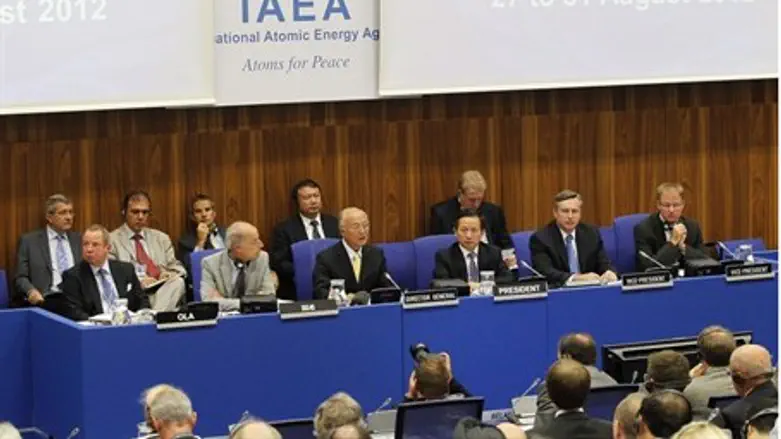
Western countries have long suspected Iran of misleading international inspectors over the extent of its nuclear program – and now a top Iranian official has admitted as much. In an interview with the London-based Arabic Al-Hayat daily, Fereydoun Abbasi, head of Iran's Atomic Energy Agency, said that Tehran had on occasion “misled” International Atomic Energy Agency (IAEA) inspectors on a number of issues.
“At times we submitted false information (to inspectors) in order to defend the nuclear facilities and our achievements, “Abbasi told the paper.” “We had no choice but to mislead the IAEA and other spies.”
Abbasi also described the practical tactics of how Iran misleads the West. “Sometimes we pretend to have a weakness we really do not have,” to throw inspectors off the track; if Iran is not capable of certain more basic things, the thinking is that they could not be capable of more advanced activities. “And sometimes we pretend to have a strength that we do not have. Afterwards, the effect of these tactics is evident when we have discussions with the IAEA,” Abbasi said.
Abassi, who is also a vice-president of Iran, said that the regime felt it had no choice but to act deviously. “It is unacceptable that the IAEA would consider us as a guilty party that has to prove its innocence. There are certain parties that accuse us of all sorts of things, and the IAEA tries to prove these accusations. It is similar to what happened to Saddam Hussein of Iraq.” Hussein was accused of amassing weapons of mass destruction by the U.S., but to date no such weapons have been found.
Abbasi added that Iran is being targeted by spy and security agencies around the world. “For seven years we have been observing British Mi6 agents spying on us, and gathering information on individuals who were eventually killed by Zionist agents.” Abbasi was referring to Iranian nuclear scientists who have been killed in automobile accidents or other incidents. Iran has accused Israel and Britain of being behind the killings, charges both countries deny.
Abbasi, who was speaking during a meeting of the IAEA, said that he did not believe the U.S. or Israel would attack Iran. However, he said that he expected international pressure to remain high, or even grow, with the IAEA bouncing the Iranian nuclear issue back to the UN Security Council for further action.